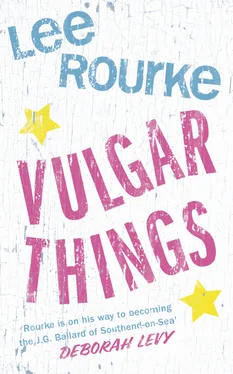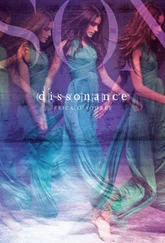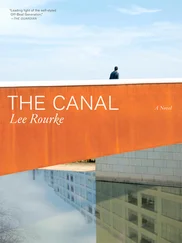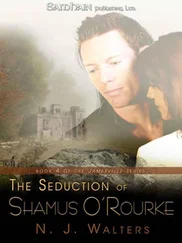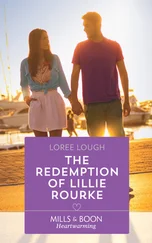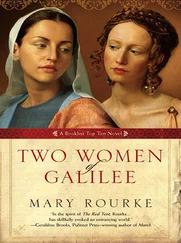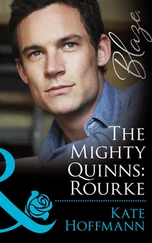‘Probably on drugs …’
‘It’s disgusting …’
‘Really … on a train?’
‘It’s disgusting …’
‘Other people around, too …’
‘Horrid.’
‘Some people have no manners.’
‘It’s disgusting …’
‘I hope he cleaned it up …’
‘Stop it!’
‘What?’
‘I can’t think about it …’
I walk down the aisle, back to my seat in the next carriage. I don’t care. It doesn’t matter to me. I’ve packed a bag with enough clothes to last a week. I figure that’s how long it should take me to clear up Uncle Rey’s caravan. I’m not sure what to expect. I try to remember when it was I last saw him, but I can’t pin down any single encounter. He comes to me in a blur of phrases, the most prominent being: ‘I like it here, below the sea …’
He would always talk about the sea: how the island lay below it, everything in his life existing below sea level. It seemed to suit him, out there, all alone. Other phrases, other words appear in fits, as do events, songs and smells. I have vivid recollections of his stinking caravan from when I visited the couple of times to smoke weed with him, when I was a teenager. I liked him back then, even though my father distrusted him. Whenever I returned, my father would be there waiting for me. He would always say the same thing: ‘We lost him to wacky baccy and strange ways. He’s better out there on the island. It suits him out there below the sea.’
This was before my dad died. I can’t remember Dad ever visiting Uncle Rey. I just thought they didn’t get on. I never gave it much thought really. I always liked Uncle Rey, the few times I met him. His gnarled face cheered me up, his rasping cigarette/marijuana-burned voice, the songs he’d sing, his dreadful ukulele playing. Everything about him intrigued me: the fact that he’d never worked, had opted out. He seemed real in ways my father never could. Uncle Rey was lost; he made perfect sense to me.
I look out of the window. Green trees merging with the dark mud of the estuary, turning to a constant brown, a slutch that seems to stretch all the way to the horizon. It’s an unforgiving, blank landscape that exposes any irregularities: a church, a tractor, horses, a boat in a yard — before they too become dirt blots, blurs, interrupting the flatness of things.
the island
I stand on the platform at Benfleet with my rucksack. At first I’m unable to move, so I just stand there and watch the train crawl away towards the wilds of Essex: Southend and Shoeburyness. I watch it until it slips out of sight, around a curve in the track. No one else has alighted from the train with me. I stand on the platform alone. Once the train can’t be heard I am immediately struck by the silence, the slight whiff of iodine and a sense of déjà vu. I head towards the exit. I’d decided on the train that I’d walk onto the island. Some seagulls are swirling above me, a sonorous spectacle, their vibrant and beautiful sound all around me.
It strikes me that I’m not really sure of the way. I know the general direction, I can see the oil refinery in the distance, but I’m not sure where the bridge is that takes visitors over the creek and onto the island itself. I know it’s next to some yacht club by the muddy creek, but I’m not sure which road to take from the station. Just as I step out onto the road, outside the station, I notice a man on a mobility scooter. I decide to ask for directions.
‘Which way is it to Canvey?’
‘Follow this road. It’ll take you across the creek. Good luck.’
‘Thanks.’
Good luck? I’m only walking to Canvey, to clear my dead uncle’s caravan. I shrug my shoulders and continue to walk in the direction he’d advised. After about one hundred yards I come to the creek. The yacht club is on the other bank to my left, on Canvey, close enough that I can lean over and touch it, it seems. That’s the extent of the island’s distance from the ‘mainland’ yards away. I realise at this moment just why I used to laugh when Uncle Rey referred to Canvey as ‘the island’, as most people on Canvey do — it hardly looks like one. But it is, and as soon as I cross the bridge things feel different: the whole landmass of the UK is behind me, stretching towards some other horizon. My understanding of its separateness must have been born within me the very first time I stepped onto the island. I’m sure of that. I’ve always understood, deep down, beneath the laughter, why the locals refer to it as the island, deep down it’s always made perfect sense to me: to feel dislocated, to feel lost and forgotten.
The streets are empty. I remember a man I used to see walking the streets when I once visited Uncle Rey in the summer holidays. He was an old man, the locals used to call him Captain Birdseye, or Barnacle Bill. He would walk the streets all day long in his fisherman’s yellow boots and sou’westers. All day long. I would see him everywhere I went, from the jetty to the High Street. Years ago I asked Uncle Rey whatever happened to him.
‘He moved away … to a mobile home site like this one, over near Stock in Chelmsford. Once, I hadn’t seen him for years, I was over in Stock for some reason, some woman I think, and I saw him. He looked frail, like death was close. He was waiting at a bus stop, still wearing the same yellow boots and sou’wester … It was all very sad. He’ll be dead now, I guess.’
I half expect to be greeted by an array of old characters but, after the seagulls and the old man on the mobility scooter, I am met with silence again, maybe the sound of the odd car or two passing me on the road. The houses to my immediate left, tucked away just behind the yacht club, look not just empty, but a strange kind of empty, like their inhabitants have all suddenly upped and left the island, leaving all their personal belongings behind, just as they were. I can even see that some of the houses have left their plasma TV screens on, yet there’s still no sign of life inside, or children playing on their bikes outside, or the odd family pet. I ignore this; I don’t want to feel any more spooked than I am at this moment. I know I have saddening work to do and I want it done quickly and without interruption.
I’ve forgotten just how flat and eerie the island is: the idea that the land beneath my feet actually lies below sea level — the estuary looming, high up behind the sea walls — becomes more worrying with every step. The sky above me, massive and grey, stretched to its limits, bears down on the island. I look over to the large oil refinery that dominates the immediate horizon to my right. There are people in hard hats over there, bobbing about, doing stuff with pipes and machinery. Maybe that’s where everybody is? Working hard at the refinery. It is ‘Oil City’, after all.
I can hear something, off in the distance. It comes to me suddenly. There it is, the rumble of an oil tanker’s engines ahead of me out on the Thames, a constant baritone, its vibrations felt from the tip of my toes to the hair on my head, all around me, quivering on my tongue and through the fine hairs in my nostrils. There it is again, a slow, aching, constant rumbling, from somewhere within the water above, making slow progress towards Tilbury. I stop dead and listen to it pass, until it fades from my range and the tingling subsides within me.
It shakes me: an image of the sea wall cracking appears in my head. The dark sea reclaiming the land that was taken from it, rushing through the streets, into homes, factories and ancient lanes. The sea wall crumbling away at the eastern edge of the island, giving way to the tide, a black wall of water. The last time this island flooded was 1953. Fifty-eight people died. Uncle Rey was a young lad then. I don’t know if he was aware it had happened until he moved here. If it was ever mentioned, he’d go quiet.
Читать дальше
Конец ознакомительного отрывка
Купить книгу
